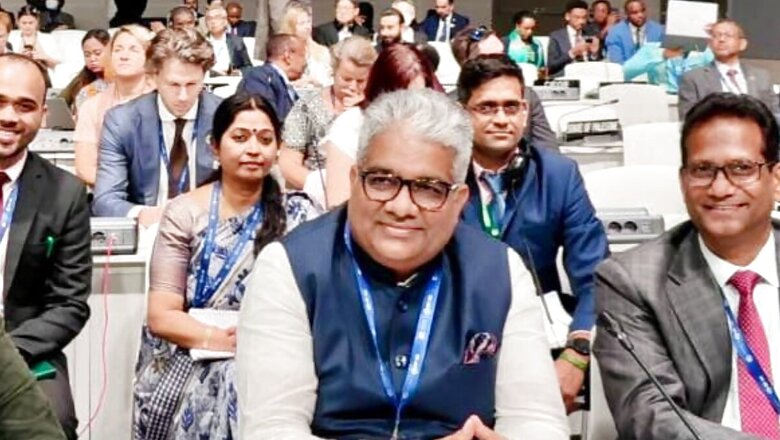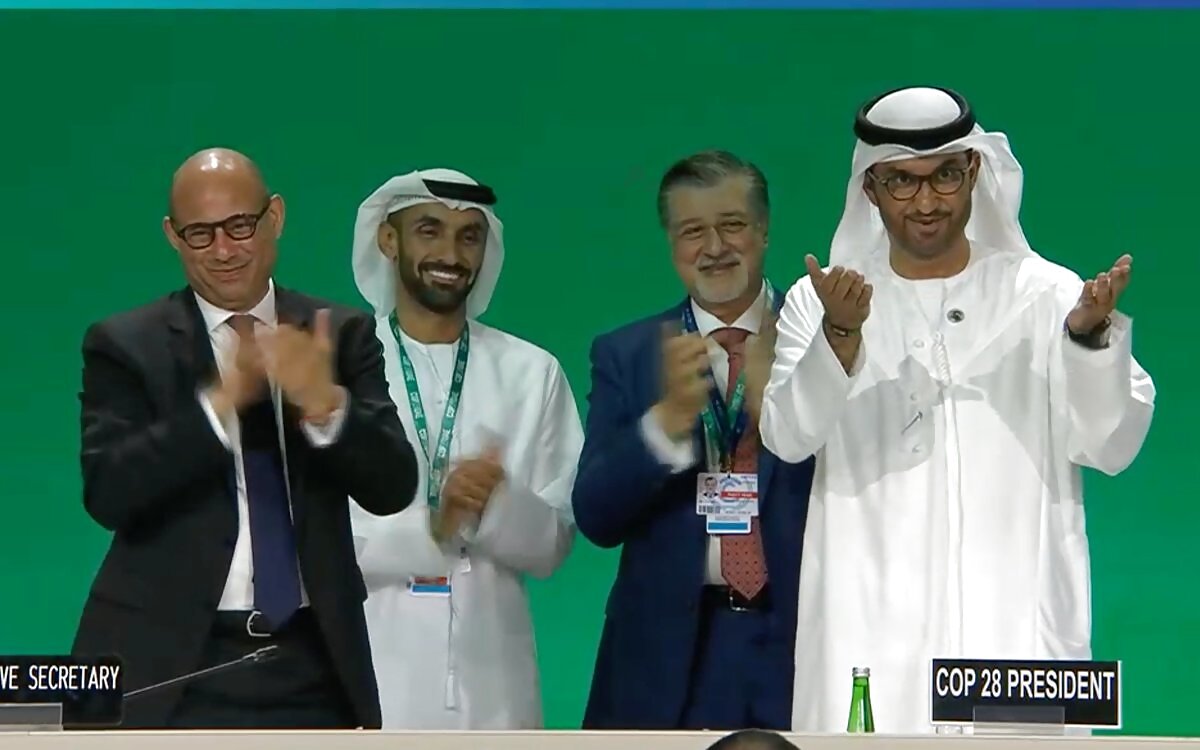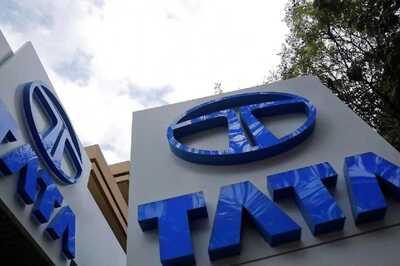
views
Raising some hope for climate justice, the 28th UN Climate Summit has set in motion the long-awaited agreement to operationalize the historic Loss and Damage Fund on day one of the two-week long conference. The fund will financially compensate developing countries most vulnerable to the devastating impacts of climate change.
The deal is hard-won. Small Island nations and other developing countries have been fighting for it at the global summits for almost 30 years. However, the lack of financial commitments from the rich and developed nations to pay for the losses incurred by the poor continued to hamper the talks. The proposal adopted on Thursday still does not legally bind countries to make any contribution to the fund, but invites pledges which are just voluntary.

LANDMARK DECISION, SAYS INDIA
Union Environment Minister Bhupender Yadav who reached the UAE on Wednesday termed it as a landmark decision that India strongly supported. “A positive signal of momentum from COP28 on the first day," he said. Countries in the Global South have faced significant capital losses due to the impacts of climate change which have intensified over the years.
According to a report by the University of Delaware’s Climate Hub, middle-income countries witnessed a loss of almost $2 tn in manufactured capital up to 2022, while low-income countries have lost over 90 billion due to wide scale impacts of climate change. As of 2022, India alone suffered a cumulative decrease of 7.9% in capital wealth, mostly due to climate impacts to human-produced capital, as per the study.
A positive signal of momentum from COP28 in UAE on the first day itself.Landmark decision on operationalisation of the Loss and Damage Fund was adopted in the opening plenary of COP28.
India strongly supports the decision to operationalise the Loss and Damage Fund.… pic.twitter.com/JqpEXVsTC4
— Bhupender Yadav (@byadavbjp) November 30, 2023
NO OBLIGATION, ONLY VOLUNTARY PLEDGES
The Oil-rich UAE, hosting the summit, committed $100 million to the fund at the outset. “This now sets a clear ambition for us to deliver a comprehensive Global Stocktake (GST) decision over the next 12 days," said COP28 President, Dr Sultan Al Jaber, encouraging leaders to raise ambition and unlock crucial funding.
This was followed by a €225 from the EU (including Germany), 40$ million from the UK with £20m for other funding arrangements for loss and damage. The US has pledged $17.5 million and $10million from Japan.
The nations reached some consensus over the need of “at least $100bn a year" funding for loss-and-damage by 2030.
While the countries welcomed it as a good sign, the absence of clear commitments remains a sore point. “There are no hard deadlines, no targets and countries are not obligated to pay into it, despite the whole point being for rich, high polluting nations to support vulnerable communities who have suffered from climate impacts," said Mohamed Adow, Founder and Director of Powershift Africa, a think tank.
Experts also point to the need to ensure the pledges lead to flow of new and additional funds to support communities where it is most urgently needed. “The money should be in the form of grants rather than loans that risk further indebting these economies. It needs to go beyond commercial insurance provisions, which can fail in the face of recurring and widespread disasters," said Ulka Kelkar, Executive Director, Climate, WRI India.
WORLD BANK AS INTERIM HOST: A COMPROMISE
Much to the dismay of developing countries, this will be a financial intermediary fund and its Secretariat will be based at the US-dominated World Bank as the interim Trustee for next four years. An independent 26-member Board will be constituted with 12 developed and 14 developing countries to finalize the eligibility criteria for fund access. The fund will operate in accordance with the principles of the UNFCCC and the Paris Agreement. All developing countries are eligible to directly access resources, with minimum percentage allocation for the Least Developed Countries and Small island developing states.
Even after the COP28 succeeded in setting up the fund in Sharm-el-Sheikh last year, it took as many as five Transitional Committee (TC5) meetings to chalk out the final proposal. The countries continued to spar over where the fund will be based and what will be the funding arrangements. But the TC5 in Abu Dhabi met last-minute in early November and sealed some ‘consensus’ to put the agenda on the COP28 table.
Developing countries still have several concerns, especially on the lack of clarity in current pledges on how the fund will be replenished in the long-run. “The responsibility now lies with affluent nations to meet their financial obligations in a manner proportionate to their role in the climate crisis, which has been primarily driven by decades of unrestrained fossil fuel consumption and a lack of adequate climate finance delivered to the Global South," said Harjeet Singh, head of global political strategy at Climate Action Network International.



















Comments
0 comment